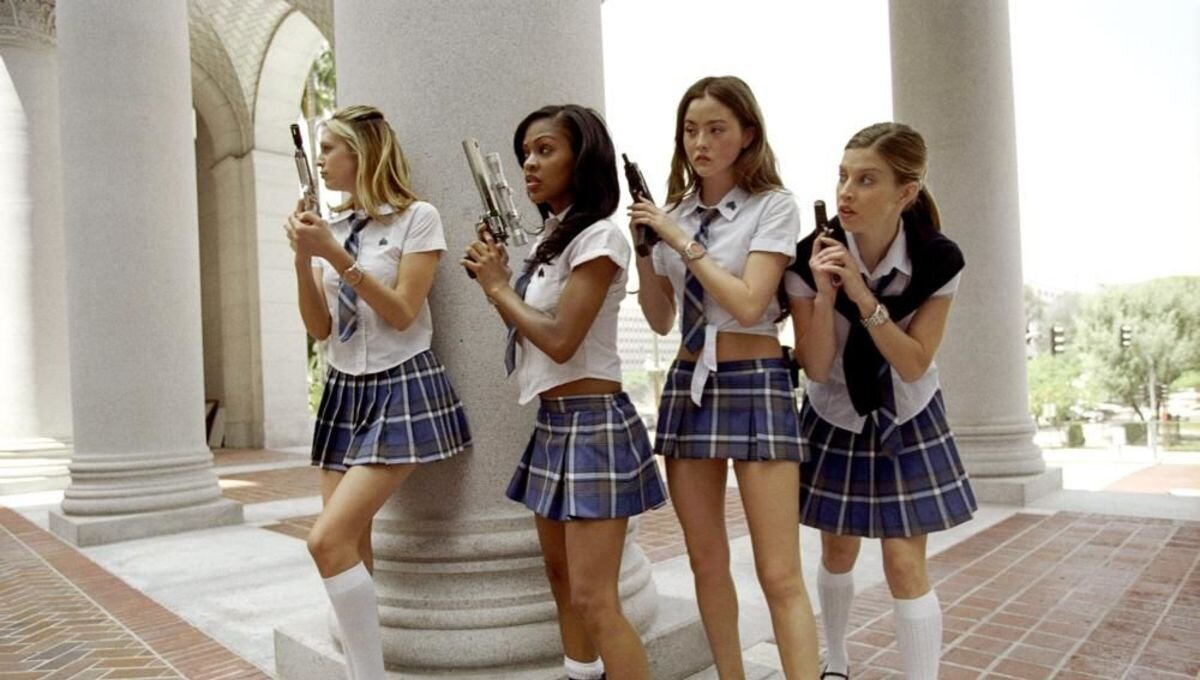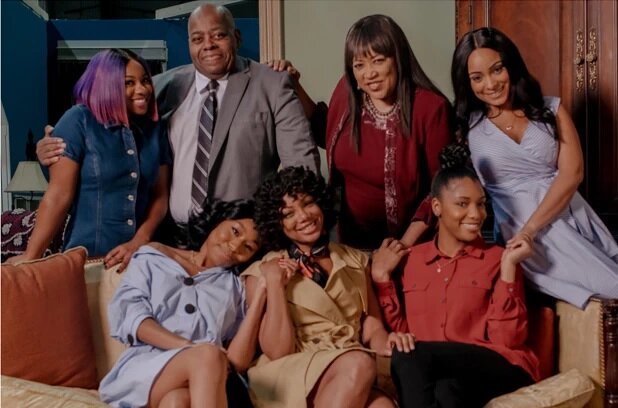SYFY Wire
By Andrea Thompson
The 2004 film “D.E.B.S.” is one of those deeply silly gems that was unfairly panned, both critically and commercially, but was subsequently rewarded with cult status once the dust settled.
In a sense, it’s easy to see why so many were disappointed. The movie’s trailer and marketing teased a comedic, action-packed espionage adventure with girls in short skirts that poked fun both at itself and the action genre. And it’s not that “D.E.B.S.” doesn’t deliver the laughs and even the action, but at its heart, “D.E.B.S.” is a love story dressed up in action movie tropes.
The premise is that girls known as D.E.B.S. are trained in espionage at a paramilitary academy. They’re recruited via a hidden test in the SATs, which measures someone’s aptitude for the spy life. And what qualities, according to the movie, makes someone an ideal candidate? The ability to “lie, cheat, fight, and kill.” Such a cynical view of what is essentially government work is rather bold for a time when mindless patriotism was at an all-time high, even if the organization seems to have the usual goal of beating bad guys bent on destruction. Or in this case, bad girl, Lucy Diamond (Jordana Brewster).
With such a premise, it’s surprising that the action and the espionage itself falls rather short, and it’s not just due to budgetary constraints. The early 2000s was not a good time for film, given that a conservative brand of sleaze reigned supreme and CGI was just starting to really come into its own, giving studios shortcuts they hadn’t had access to previously, often at the detriment to things like storytelling and character. And the effects in D.E.B.S. haven’t aged especially well, even if they remain fun, and include components such as a plaid force field to shield their school/training facility.
Screenshot
But the action sequences tend to lack urgency and suspense, and they’re actually rather boring. The love story is the interesting part, and it’s both a product of its time and ahead of it. Sure, sexual tension between a hero and their antagonist isn’t new by any stretch, but it is rare for both of them to be women.
In true spy fashion, the two meet on a stakeout, where Amy (Sara Foster) is a top recruit, and actually the only one at the academy to get a perfect score, while Lucy is the villain who inherited a crime empire from her family, and has recently reappeared with plans to meet up with a Russian assassin. The logical next step is a dastardly plan, but as Amy discovers when she’s separated from her team and encounters Lucy, the meeting was actually a blind date. It went terrible, but sparks immediately fly between Lucy and Amy, and Lucy is soon abducting Amy at gunpoint to go on a date, and robbing a bank so she has another excuse to meet up with her. Such is their connection that Amy actually ends up running off with Lucy for a week, kicking off a montage of cute relationship moments, with the rest of the organization assuming Amy’s been captured.
The fallout is bound to come, and it’s brutal even before the rest of the D.E.B.S. find Amy and Lucy in bed together. Writer-director Angela Robinson, who is gay herself and typically includes LGBTQ themes in her films, makes it clear that much of her friends’ disgust with her isn’t just due to Amy falling for a villain, but falling for a female one. That someone who previously identified as straight and dated men in the past would suddenly fall for someone of the same gender is incomprehensible. Even if most eventually come around, and one even keeps her secret for as long as she can, Amy is also called a gay slut and a whore, and she insists she’s not gay, even as her attraction to Lucy grows.
Screenshot
While the D.E.B.S. demand that Amy hide her relationship with Lucy out of fear of their organization becoming a laughing stock, it’s Lucy and her supportive sidekick Scud (Jimmi Simpson) who come off as downright enlightened, especially when Lucy decides to get Amy back. Even if Lucy’s first instinct is an evil scheme, she eventually decides to become a better person, returning much of what she stole and sending Amy adorable presents. It’s far, far, easier to get behind the two of them then the so-called good guys who demand silence and conformity.
When Amy and Lucy finally do decide to commit to each other, Robinson is also sadly aware of what the limits of a happy ending are. Amy’s friends might come around, but the agency does not, with the two secretly departing together with implications of traveling to Barcelona so Amy can follow her dream of going to art school. They drive off not into a beautiful new day, but under the cover of night, with just a hint of sunset offering a glimpse of a better, happier, and more enlightened future.





















